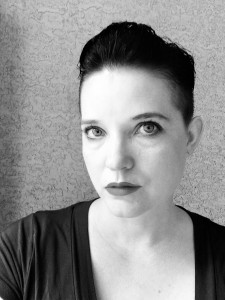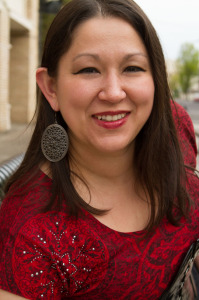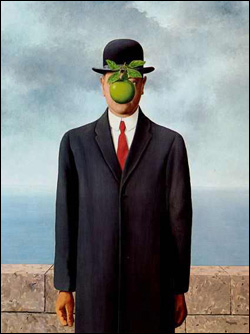 I grew up in a time where we were taught to conform. If you want to write like the Greats, then study the Greats. Creative Writing professors often told us to choose a writer we admired and then write a poem or short story copying their style.
I grew up in a time where we were taught to conform. If you want to write like the Greats, then study the Greats. Creative Writing professors often told us to choose a writer we admired and then write a poem or short story copying their style.
It accomplished what it set out to do, I suppose. We became more familiar with the writers we studied. We could pick out nuance and detail that were unfamiliar before. At the end of class, we emerged with a greater understanding of Faulkner, Frost, and Dostoevsky.
The only problem is that the woman sitting to the left of me wasn’t Faulkner. I wasn’t Frost. And the man in the front row never wanted to be Dostoevsky.
Authors have their own unique voices, and it’s a shame not to use them. Writers write because they care. They have something to say. They want to spread a message or they want to chat with their readers. They want to tell you things. Describe things. How is an author supposed to accurately express themselves when they have, in essence, learned to speak using somebody else’s voice?
Enough of that. You are YOU. The greatest thing you can bring to the literary table is yourself. Faulkner has already taken his seat. Do you know who should be sitting in the chair next to him? You. You have wonderful things to discuss.
Here are a few exercises and ideas that can help you find your own unique writing voice.
1. Write yourself a letter.
It doesn’t matter what kind of letter. What are you saying? What words do you use? Are you formal or folksy? Do you speak to yourself like a friend or is there a respectful distance there?
This exercise helps in a couple of ways. First off, it forces you to sit down and write, which is the first step. It’s also not meant to be daunting. Who cares about your literary success more than you? Nobody, that’s who. So write yourself a letter. Don’t judge yourself. This is a time to see what flows from your pen (or computer) when nobody is looking.
2. Record yourself talking about your upcoming project.
You can do it via audio or video, but the idea is similar to letter writing. What types of phrases do you use? Are you excited about the project? Now record yourself discussing a different project, preferably one that is in a dissimilar vein than your first project. Project #2 has a different ambiance, yes? Different subject matter? How do you sound while discussing it? Are your words the same?
3. Write a list of your favorite words.
Why are these your favorite? What makes them part of your vocabulary?
I had a member of my writer’s group say that he could always detect my work because I would use the words “broken” and “exquisite” quite often. And while this made me laugh, I realized that I do have choice words, and they convey exactly what I want to say. I’m not saying to use repetitive words in order to form voice, but to keep a lookout on your unique word set. These choices make you the writer you are. They’ll give you a hint on what your voice sounds like.
4.Realize that you might have more than one voice.
We discussed that one author doesn’t necessarily sound like another. And you might not necessarily sound like yourself all of the time. Perhaps that doesn’t make sense, but let’s go back to step 2, where you recorded yourself discussing two different projects. Two diverse projects might have two separate voices.
I realized that I have two distinct voices. One is a smart aleck type of voice with sarcasm and swagger, and it usually comes out while writing first person. I also have an elegant, much more ephemeral voice that uses higher and more lyrical language. This tends to come out when I’m writing in third person, and this voice is what I’m more noted for. But until I figured this out, I found it confusing. I wasn’t sure exactly why I sounded one way for one project and so different for another. I just wrote what I felt like writing, but other writers discussed the concept of “voice” so much that I became insecure and made the effort to figure mine out.
5. Write. Write a lot.
You won’t discover your literary voice in any other way. These suggestions can help, but we all know the only way to become a better, more informed writer is to read and write. But by being able to identify your literary voice, you’ll be able to more easily convey the sense of your work to others. This will help immensely when pitching your work, and will hopefully lead to even more opportunities for you.
Write on, my friends.
Bio: Mercedes M. Yardley is a dark fantastic who wears red lipstick and poisonous flowers in her hair. She is the author of Beautiful Sorrows, Apocalyptic Montessa and Nuclear Lulu: A Tale of Atomic Love, Nameless, and her latest release, Pretty Little Dead Girls: A Novel of Murder and Whimsy, from Ragnarok Publications. Mercedes lives and works in Sin City, and you can reach her at www.mercedesyardley.com.
#sfwapro
Want to write your own guest post? Here’s the guidelines.
Enjoy this writing advice and want more content like it? Check out the classes Cat gives via the Rambo Academy for Wayward Writers, which offers both on-demand and live online writing classes for fantasy and science fiction writers from Cat and other authors, including Ann Leckie, Seanan McGuire, Fran Wilde and other talents! All classes include three free slots.










7 Responses
Cat Rambo: Guest Post from Mercedes M. Yardley: Find Your Literary Voice http://t.co/jByCqV84Lq
RT @Catrambo: Guest Post from Mercedes M. Yardley: Find Your Literary Voice: http://t.co/z8cVagY27C
@Catrambo allows me to guest on her blog. Finding Your Literary Voice: http://t.co/tyIdBGE1ky
RT @mercedesmy: @Catrambo allows me to guest on her blog. Finding Your Literary Voice: http://t.co/tyIdBGE1ky
RT @mercedesmy: @Catrambo allows me to guest on her blog. Finding Your Literary Voice: http://t.co/tyIdBGE1ky
RT @mercedesmy: @Catrambo allows me to guest on her blog. Finding Your Literary Voice: http://t.co/tyIdBGE1ky
RT @mercedesmy: @Catrambo allows me to guest on her blog. Finding Your Literary Voice: http://t.co/tyIdBGE1ky